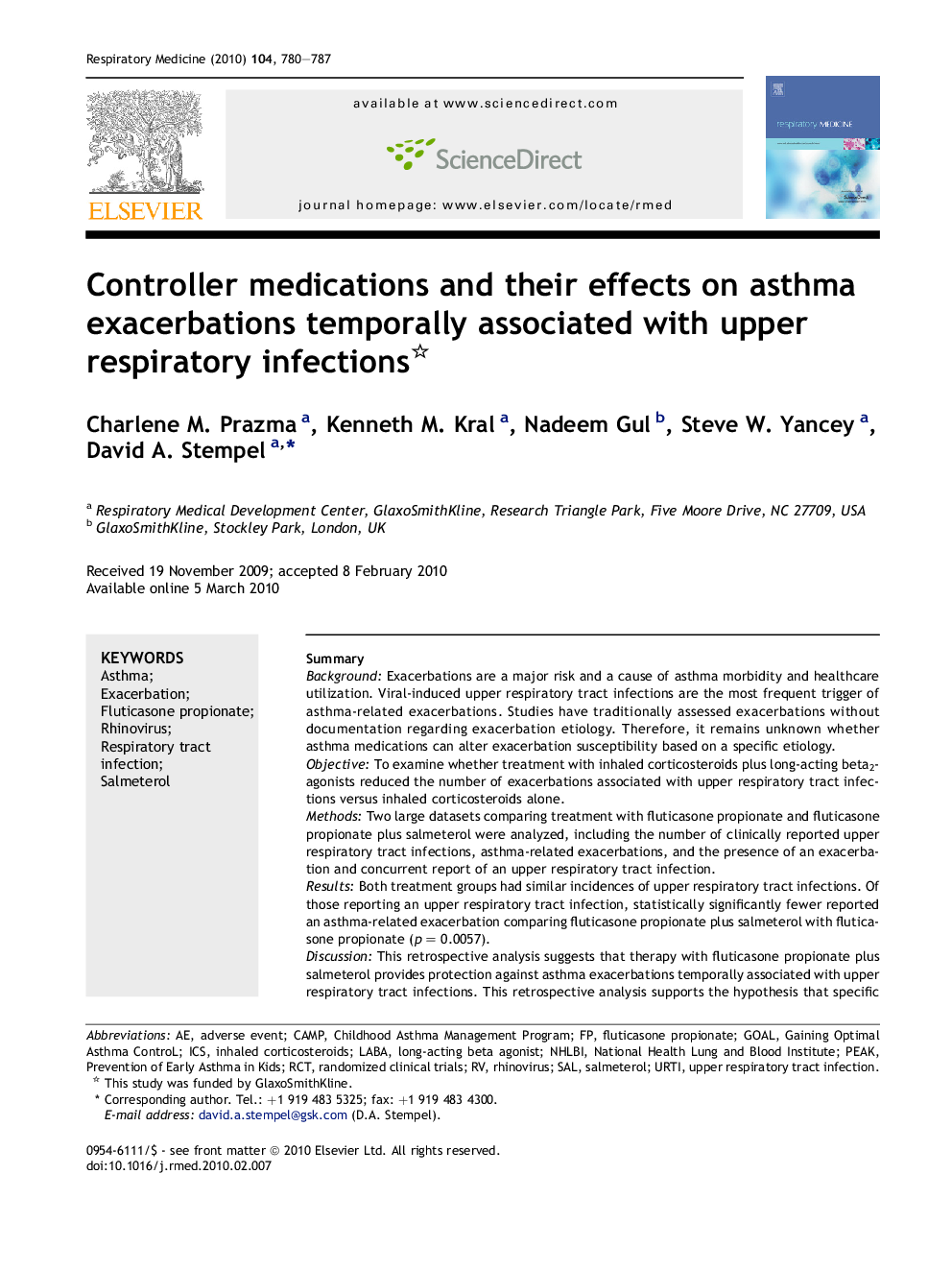| Article ID | Journal | Published Year | Pages | File Type |
|---|---|---|---|---|
| 4210554 | Respiratory Medicine | 2010 | 8 Pages |
SummaryBackgroundExacerbations are a major risk and a cause of asthma morbidity and healthcare utilization. Viral-induced upper respiratory tract infections are the most frequent trigger of asthma-related exacerbations. Studies have traditionally assessed exacerbations without documentation regarding exacerbation etiology. Therefore, it remains unknown whether asthma medications can alter exacerbation susceptibility based on a specific etiology.ObjectiveTo examine whether treatment with inhaled corticosteroids plus long-acting beta2-agonists reduced the number of exacerbations associated with upper respiratory tract infections versus inhaled corticosteroids alone.MethodsTwo large datasets comparing treatment with fluticasone propionate and fluticasone propionate plus salmeterol were analyzed, including the number of clinically reported upper respiratory tract infections, asthma-related exacerbations, and the presence of an exacerbation and concurrent report of an upper respiratory tract infection.ResultsBoth treatment groups had similar incidences of upper respiratory tract infections. Of those reporting an upper respiratory tract infection, statistically significantly fewer reported an asthma-related exacerbation comparing fluticasone propionate plus salmeterol with fluticasone propionate (p = 0.0057).DiscussionThis retrospective analysis suggests that therapy with fluticasone propionate plus salmeterol provides protection against asthma exacerbations temporally associated with upper respiratory tract infections. This retrospective analysis supports the hypothesis that specific therapeutic approaches to mitigate virus-associated exacerbations may benefit asthma care. Well-controlled prospective studies are warranted.
